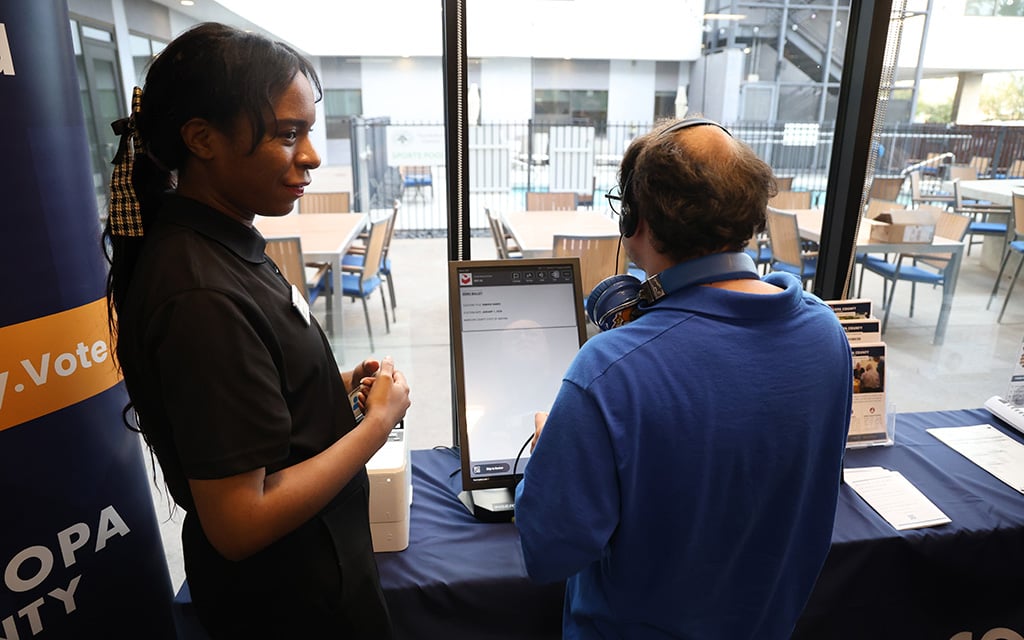
Angelica Bland helps Isaac Bravo find his way around the ICX voting machine at the mock election event on Feb. 27. (Photo by Jack Orleans/Cronkite News)
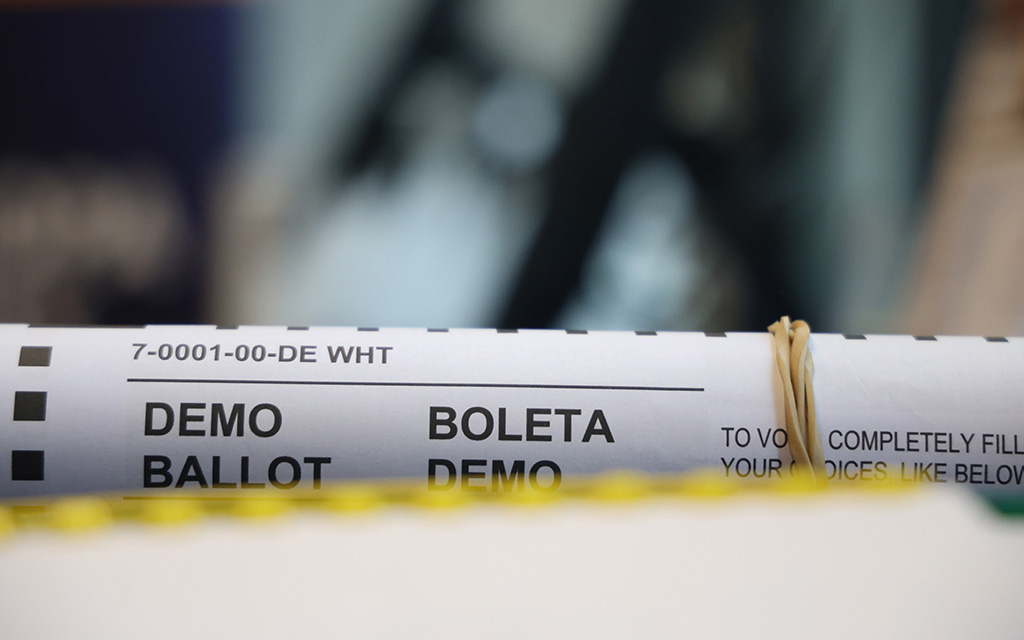
A sample large-print ballot sits on the table beside other voting resources for people with disabilities on Feb. 27. (Photo by Jack Orleans/Cronkite News)
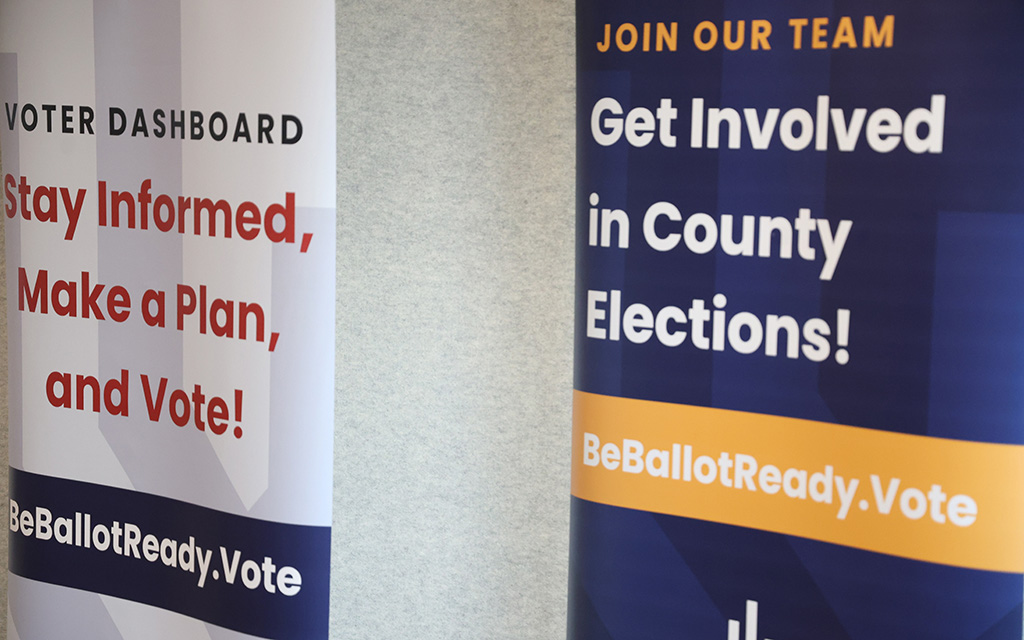
Signs at the mock election event on Feb. 27 give information about where and how to vote. (Photo by Jack Orleans/Cronkite News)
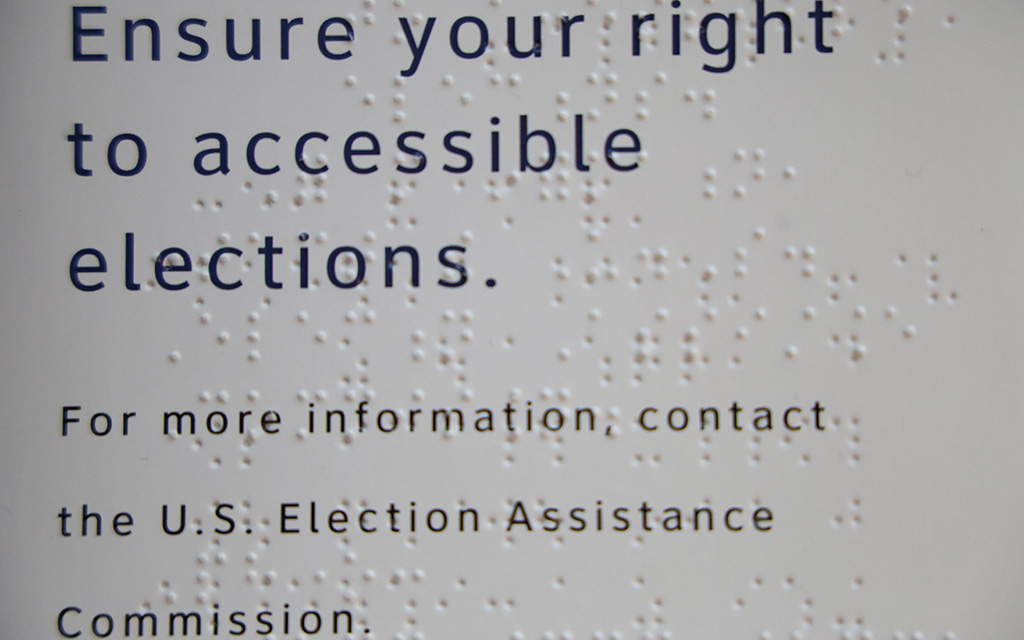
A Braille placard informs people about their rights as voters with visual impairments, at the mock election event on Feb. 27. (Photo by Jack Orleans/Cronkite News)
PHOENIX – A mock election to help voters with various physical or mental disabilities was held Feb. 27 by the Maricopa County Recorder’s Elections Office and Vote The Spectrum, an initiative launched by a Phoenix nonprofit to register 10,000 individuals with autism or intellectual or developmental disabilities.
“We’ve done 250 vote registrations as of today, and that means that we’ll get additional people out there voting,” said Monica Murray, a member of the Maricopa County Special Elections Board.
Those boards provide services to people whose various disabilities make voting difficult.
“Compared to the millions of voters out there, 250 may not be a big number, but to me that’s 250 people that would not have voted,” Murray said.
The mock election was held at First Place-Phoenix, a residential complex geared toward neurodivergent individuals. The goal of the organizers was to encourage neurodiverse people and people living with disabilities to vote because their voices matter.
The event was designed to show people various aids that are available to them, such as special request ballots. It also informed people of assistance available to help them feel more comfortable and understand what to expect in the voting booth. The mock election event was attended by individuals with a spectrum of autism and disabilities.
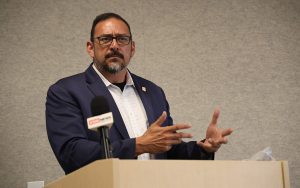
Adrian Fontes, Arizona Secretary of State, speaks to people attending the mock election event on Feb. 27. (Photo by Jack Orleans/Cronkite News)
“There are folks among us every single day who are perhaps neurodivergent, and we just may not know,” said Arizona Secretary of State Adrian Fontes.
The event provided large-print and Braille ballots for people who are visually impaired. The large-print ballot is 17 by 34 inches, and the Braille ballot uses American standard Braille, Murray said.
Attendees also tried out a third accessibility device, an ICX machine, which uses audio instructions as well as Braille with a controller similar to a video game controller.
“It’s called our audio tactile interface controller and it has buttons to navigate you through the voting process. It has Braille too if you want to read it through Braille and it also has a set of earphones as well,” said Angelica Bland, the communications coordinator for the voter outreach team at Maricopa County.
An estimated fewer than 10% of the 1.3 million legally blind people in the U.S. can read Braille, according to the National Federation of the Blind. However, no definitive number exists, according to the Journal of Visual Impairment and Blindness.
Lauren Heimerdinger, an attendee at the event who is visually impaired, found that the machine has some drawbacks. She isn’t fluent in Braille, she said.
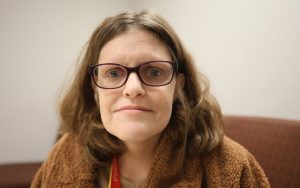
Lauren Heimerdinger, a part-time receptionist for the Arizona Center for the Blind and Visually Impaired, tested equipment provided by Maricopa County Elections at the mock election event on Feb. 27. (Photo by Jack Orleans/Cronkite News)
“I didn’t know what any of the buttons were. If I had some time before to, you know, just feel around for what the buttons felt like and know what they did, what actions they did, then that would work for me,” Heimerdinger said.
Heimerdinger said more explanation of how to use the ICX machine, or time to familiarize herself with the buttons, would have helped.
The event organizers also talked about the Maricopa County Special Elections board that helps people with confining illnesses and physical disabilities who are unable to vote at a polling location.
According to the Arizona Disability Compendium, 480,232 disabled people live in Maricopa County, which is about 11% of the county’s total population. Overall, Arizona saw a 10.6 percentage point increase from 2016 to 2020 of people with disabilities voting, from 66.2% to 76.8%, according to the Election Assistance Commission.
Arizona’s presidential preference election takes place Tuesday.

